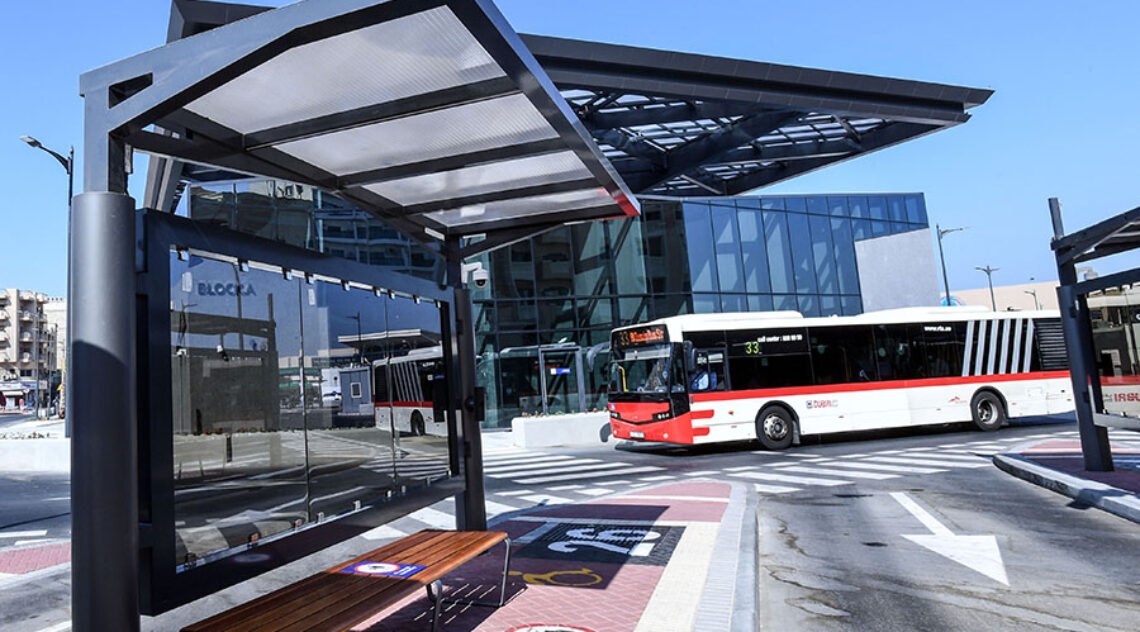
Mattar Mohammed Al Tayer, Director-General, Chairman of the Board of Executive Directors of the Roads and Transport Authority (RTA), revealed that the RTA’s precautionary measures and initiatives applied to the scheduling and operation of public buses, marine transit means, and taxis, had accelerated the recovery from the COVID-19 pandemic.
Such measures contributed to restoring the growth of public transport ridership to 70 percent of the pre-COVID-19 levels. They also contributed to reducing the number of kilometres travelled by 18 percent, improving the bus on-time arrival by six percent, and cutting carbon emissions by 34 metric tonnes, he stated.
“In cooperation with Alibaba Cloud, the RTA has recently started trialling the “City Brain” system to manage traffic in urban areas using artificial intelligence (AI) and advanced algorithms. The system analysis a massive number of big data received from nol cards, operating buses and taxis as well as the Enterprise Command and Control Centre. Then it converts the data into useful information that could be used in sending instant notifications and improving bus schedules and routes. The system is expected to improve the bus ridership by 17 percent, average waiting time by 10 percent, and the journey time and the average bus usage by five percent,” Al Tayer stated.
“In cooperation with FAMCO, RTA has recently inaugurated a remote Bus Performance Monitoring Centre Al Quoz Bus Depot, for instant tracking and monitoring the performance efficiency of RTA’s new 516 Volvo buses fitted with Telematics system. The system, which enhances the operational and maintenance processes includes 47 types of alerts covering mechanical aspects, fuel consumption per kilometre, and the condition of the safety equipment on board. It contributed to reducing fuel consumption by five percent and supported the planning for periodic and preventive maintenance of buses. It also resulted in an efficiency-driven assessment of drivers, improved the road safety standards, and improved the rating of customer happiness,” he commented.
Al Tayer stressed that RTA would continue to roll out public transport projects and integrated infrastructure and facilities and recalled that RTA had recently opened six public bus stations at Al Ghubaiba, Al Jafiliya, Etisalat, Union, Oud Metha and Al Satwa stations.
Al Ghubaiba Bus Station comprised six buildings spanning an area of 2,452 square metres and can serve 15,000 commuters per day. Al Jafiliya Bus Station has a bus terminal and a multistorey building consisting of a ground floor, two floors and a rooftop for parking vehicles. The station has a total built-up area of 19,000 square metres and a capacity of 7,000 commuters per day. The Union Bus Station in Deira comprised three buildings over an area of 2,180 square metres with a capacity of 7,500 passengers per day. The bus station attached to Etisalat Metro Station consists of a building with a ground floor and a mezzanine floor, with an area of 708 square metres, and a capacity of 4,500 passengers per day.
Oud Metha Bus Station covers an area of 9,640 square metres and consists of a ground floor, three floors and a rooftop for car parking, and has a design compatible with the public transportation system in the area. The number of commuters using the station is expected to rise to 10,000 per day. The station has nine slots for operational buses, 11 parking spaces for standby buses, 350 car parks, and racks for 23 bicycles.
Al Satwa Bus Station spans an area of 11,912 square metres and consists of a ground floor, one floor and a rooftop for car parking. Currently, the station can accommodate 7,800 commuters per day, and the number is expected to exceed 15,000 per day. The station has 15 slots for operational buses, 14 slots for standby buses, 227 car parks in addition to various facilities for providing integrated passenger services.